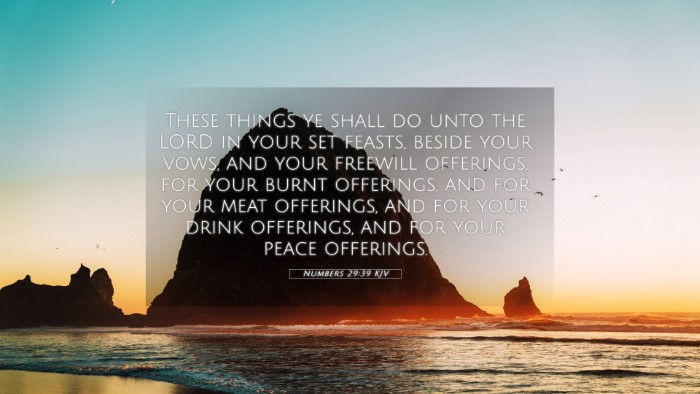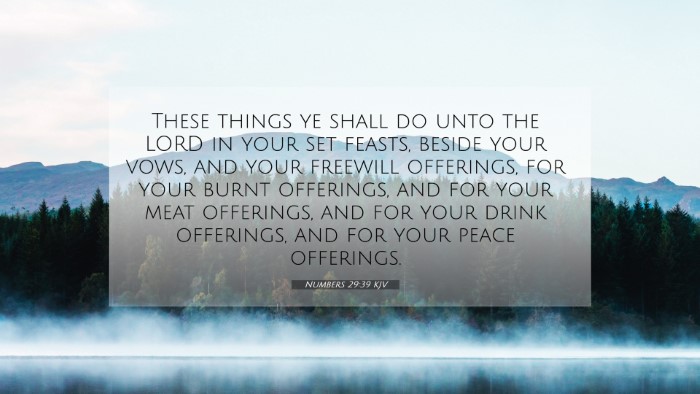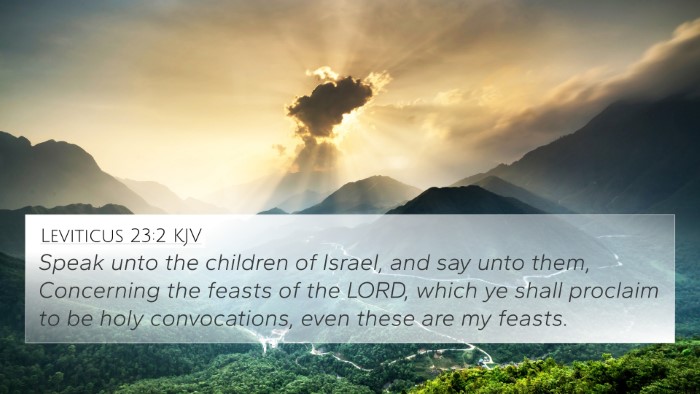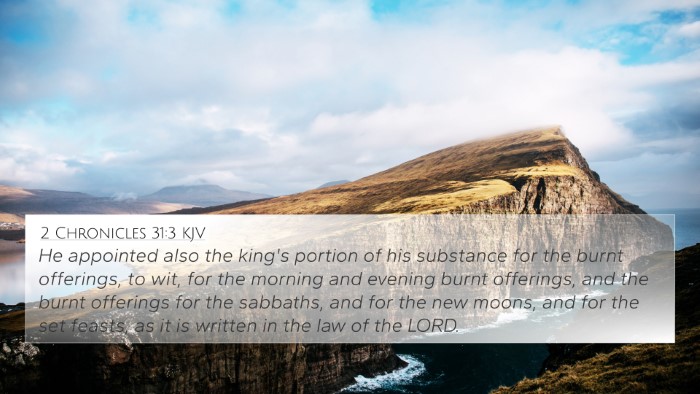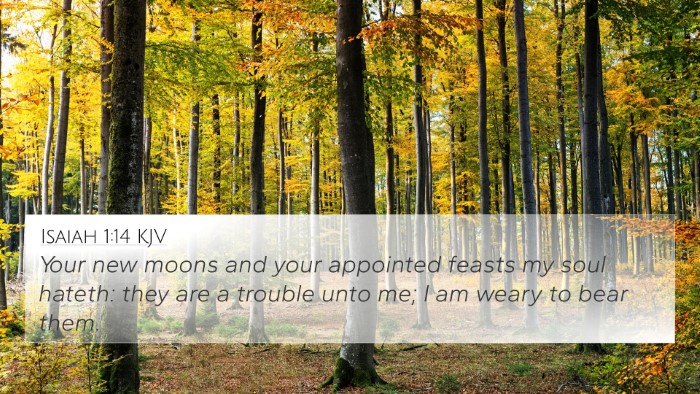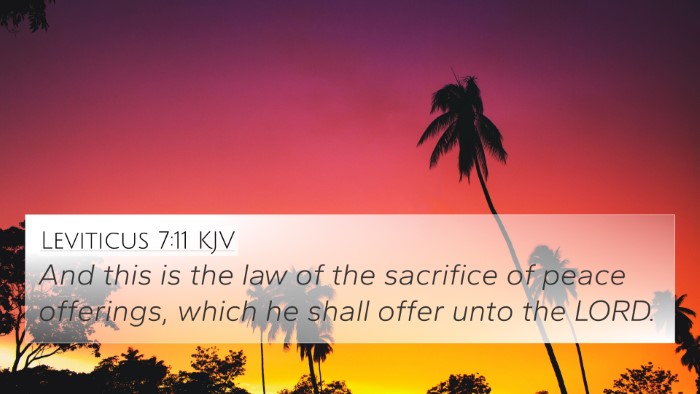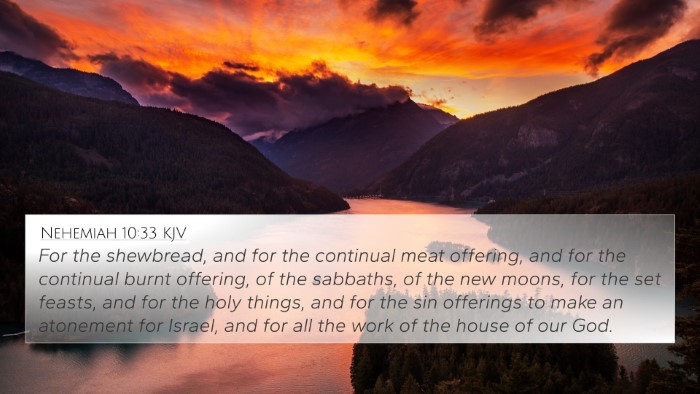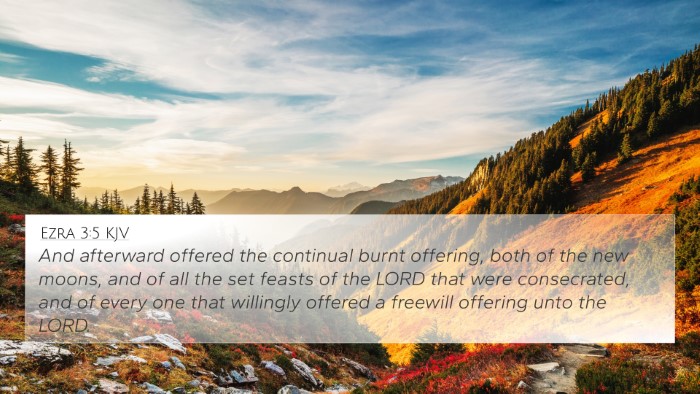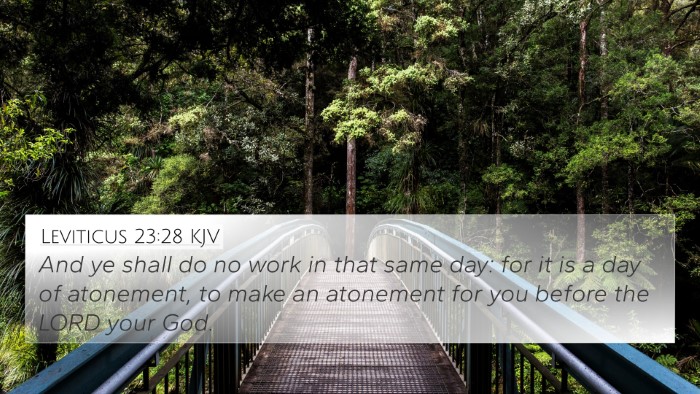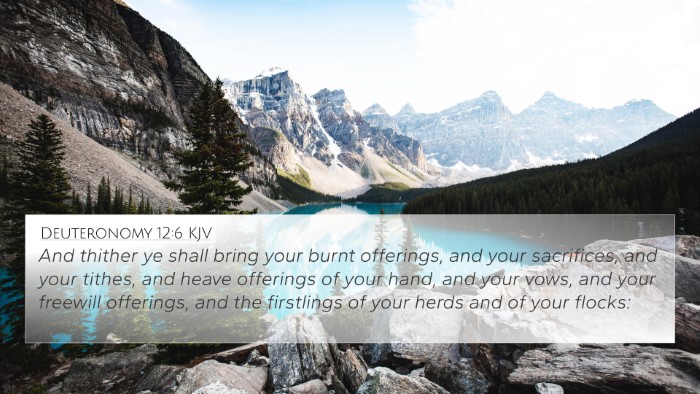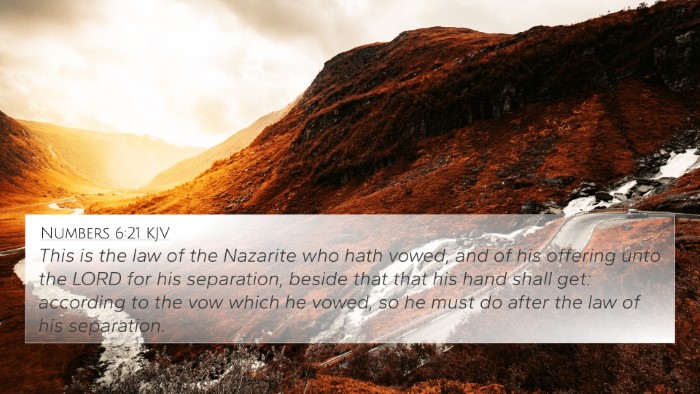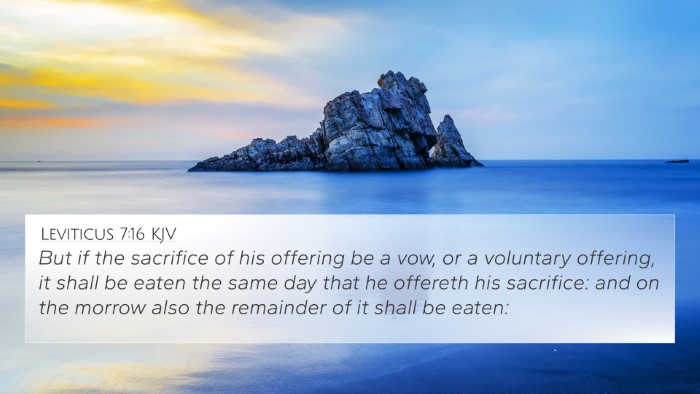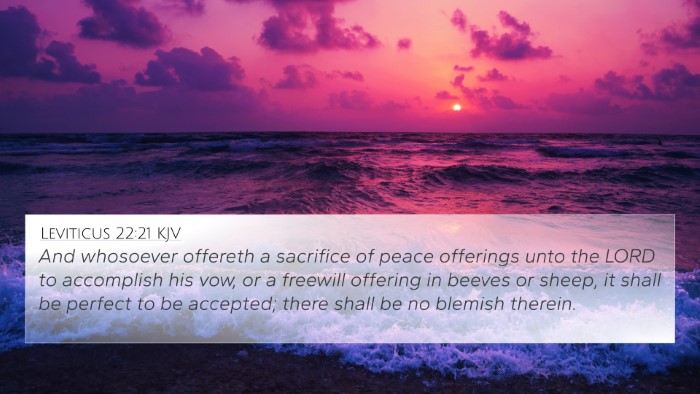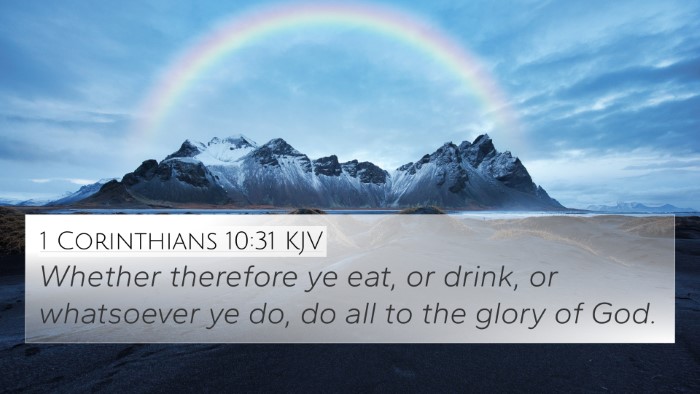Understanding Numbers 29:39
Numbers 29:39 reads: "These things you shall do to the Lord at your appointed feast, besides your vowed offerings and your freewill offerings, as your burnt offerings and your grain offerings, and your drink offerings, according to their ordinance, and at the Lord’s appointed feast."
Summary of Commentary Insights
This verse reflects the importance of ceremonial practices and offerings in the ancient Israelite worship system. It emphasizes that these offerings were not only obligations but also expressions of gratitude and dedication to God.
Key Themes and Interpretations
- Obedience to God: The offerings are presented as a directive from God, reinforcing the concept of obedience in worship.
- Celebration of Appointed Feasts: The focus on appointed feasts suggests a communal aspect of worship, where the community gathers to celebrate and reaffirm their covenant with God.
- Diversity of Offerings: The mention of various types of offerings (burnt, grain, drink) highlights the multifaceted nature of worship and the different ways individuals can express their devotion.
Cross-References for Deeper Understanding
To fully appreciate the implications of Numbers 29:39, one can reference several related scripture passages:
- Leviticus 23:34-43: Details the Feast of Tabernacles and the significance of joy and thanksgiving during the feast.
- Exodus 23:14-17: God commands three annual feasts, showing the importance of regular worship and remembrance.
- Deuteronomy 16:16-17: Further emphasizes the necessity of bringing offerings during festivals and provides additional context on what is required.
- Psalm 107:22: Highlights offering sacrifices of thanksgiving in the broader theme of worship and gratitude to God.
- Hebrews 13:15: The New Testament application of sacrifices of praise as a form of spiritual worship.
- Romans 12:1: Encouragement to present one's body as a living sacrifice, drawing a parallel to the spirit of the Old Testament offerings.
- Matthew 5:23-24: Teachings of Jesus on the importance of reconciliation in worship before making offerings.
Thematic Connections
The connection between these verses provides a richer understanding of the nature of worship in both the Old and New Testaments. It illustrates the continuous thread of dedication to God from ancient practices to modern interpretations.
Connections Between Bible Verses
There is an ongoing theme in the Scriptures relating to the importance of bringing offerings to God, which fosters an understanding of His covenant relationship with His people. Here are some insights into how Numbers 29:39 connects with other themes:
- God’s Sovereignty: The repeated instruction for offerings indicates that God desires to be at the center of His people’s lives.
- Worship through Action: The physical acts of offering serve as tangible expressions of inward faith and commitment.
- Community Worship: The requirement of gathering for feasts reflects the communal aspect of faith, where individuals come together to honor God.
Comparative Bible Verse Analysis
The Bible as a whole presents numerous interconnected themes concerning worship and offerings:
- Linking Bible Scriptures: Numbers 29:39 can be cross-referenced with various passages to draw out significant thematic connections, such as between the offerings and the nature of sacrifice demonstrated by Jesus in the New Testament.
- Bible Verses that Relate to Each Other: The exploration of how Old Testament practices foreshadow the New Testament understanding of sacrifice can deepen one’s appreciation of both Testaments.
- Inter-Biblical Dialogue: The relationships between various biblical texts showcase how God's plan unfolds, reinforcing the continuity of His covenant through diverse practices and teachings.
Conclusion
Numbers 29:39 serves as a vital verse for understanding the complexities of worship in the Israelite tradition. Its comprehensive exploration through cross-referencing and thematic connections not only enriches our understanding of the passage itself but also enhances our appreciation of the entire biblical narrative surrounding worship, sacrifice, and devotion to God.
In studying this verse, one can significantly benefit from utilizing tools for Bible cross-referencing, such as concordances and cross-reference guides, to uncover additional insights and connections beneficial for personal study or sermon preparation.

